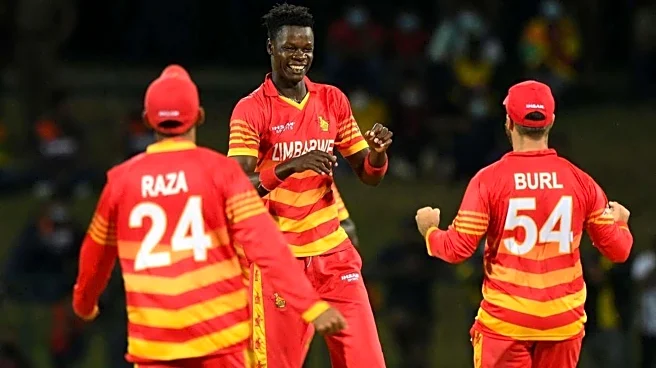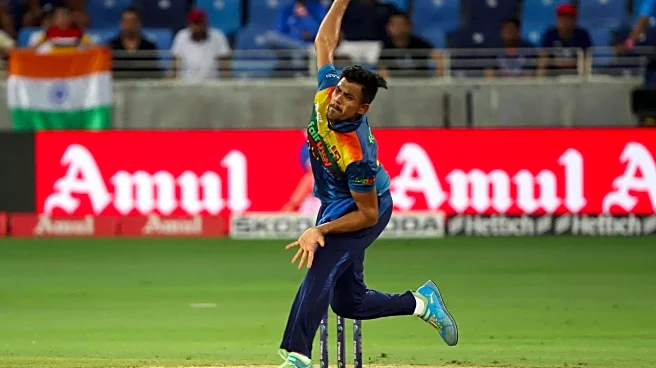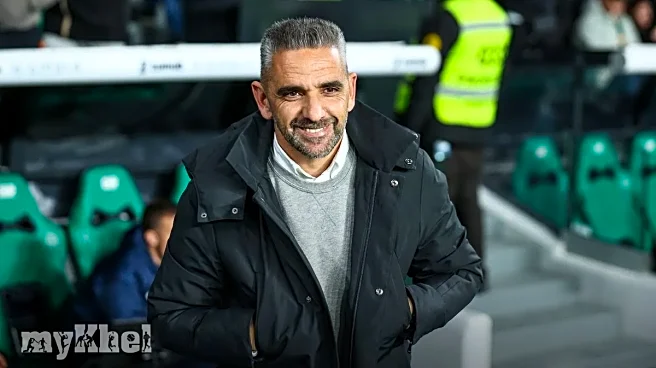What is the story about?
When Harikrishnan S’s name was announced for the National Film Award for Best Narration for his work in The Sacred Jack – Exploring the Tree of Wishes, he was overwhelmed, but not in the way one might expect. "It came as a major surprise; I’d say total disbelief, but then followed quickly by gratitude. It felt less like a personal victory and more like a recognition of the craft itself," he recalls.
The film, directed by R S Pradeep, is a documentary that blends mythology, history, and culture, exploring the legend of an ancient banyan tree believed to grant wishes. Through interviews, archival visuals, and reenactments, it traces how local communities revere the tree and the folklore surrounding it. Harikrishnan’s narration was praised for giving the story a compelling dimension.
The award announcement was bittersweet. The director, Pradeep, was undergoing treatment for terminal cancer at the time, and Harikrishnan’s first instinct was to share the news with him. "The first thing I did following the announcement was meeting him in the hospital and telling him about this recognition. It’s sad that Pradeep passed a few days after that and could not attend the ceremony."
Voice-over work is often invisible to audiences, yet it demands a unique craft. For Harikrishnan, the passion for narration grew from a fascination with the power of the spoken word. "I’d say [I] was always drawn to the power of the spoken word; how a voice can carry thought, mood, and memory. I have been a huge fan of Carl Sagan’s, Christopher Hitchens’, and Documentaries on National Geographic and Channel 4. I used to read poems and post them online during the COVID-19 lockdown period. Maybe that’s how narration became my way of fusing storytelling with performance, without needing the spotlight."
The Sacred Jack presented a special challenge, blending different layers of storytelling. Harikrishnan approached the narration with care, aided by his translation of the documentary script from Malayalam to English. "It helped tremendously in, kind of, treating it like a living conversation between the past and present, allowing to flow into different tonal shifts in the narration," he says.
Preparation, he adds, is as much mental and emotional as it is technical. "I start by inhabiting the text, reading and understanding its rhythm and intent. I do talk to the script writer and director, suggesting any potential changes. Then I, sort of, strip away everything else and focus on delivering it as if I were telling it to one attentive listener."
What sets a human voice apart in storytelling? Harikrishnan highlights subtle nuances. "I’d say breath, pause, and emphasis on tiny imperfections like those make the voice feel sort of human and lived-in, and that would create trust and help in keeping the listener tethered."
In an era of AI-generated voices, Harikrishnan sees both challenge and opportunity. "AI will most certainly take over functional tasks. But then, when it comes to evoking emotion, meaning, and memory, the human voice is not just relevant, I think it’s irreplaceable." The human element, he explains, comes from lived experience: "Well, AI simply cannot replicate the weight of lived-in experience, the sort of inflexion that comes from having lived, loved, lost, cried, and laughed and won… I lean into that depth of memory and feeling, which, I believe, no algorithm can really mimic."
Looking ahead, Harikrishnan is exploring projects close to his heart. He is working on an audiobook of poems by his favourite teacher, Vijay Nair, and runs a YouTube channel, Insight Hunt, "primarily meant to awaken curiosity in inquisitive minds." Beyond this, he continues to take on documentary and long-form storytelling.
Also Read: 71st National Film Awards: Mohanlal receives Dadasaheb Phalke Award — Lalettan's journey so far
The film, directed by R S Pradeep, is a documentary that blends mythology, history, and culture, exploring the legend of an ancient banyan tree believed to grant wishes. Through interviews, archival visuals, and reenactments, it traces how local communities revere the tree and the folklore surrounding it. Harikrishnan’s narration was praised for giving the story a compelling dimension.
The award announcement was bittersweet. The director, Pradeep, was undergoing treatment for terminal cancer at the time, and Harikrishnan’s first instinct was to share the news with him. "The first thing I did following the announcement was meeting him in the hospital and telling him about this recognition. It’s sad that Pradeep passed a few days after that and could not attend the ceremony."
Voice-over work is often invisible to audiences, yet it demands a unique craft. For Harikrishnan, the passion for narration grew from a fascination with the power of the spoken word. "I’d say [I] was always drawn to the power of the spoken word; how a voice can carry thought, mood, and memory. I have been a huge fan of Carl Sagan’s, Christopher Hitchens’, and Documentaries on National Geographic and Channel 4. I used to read poems and post them online during the COVID-19 lockdown period. Maybe that’s how narration became my way of fusing storytelling with performance, without needing the spotlight."
The Sacred Jack presented a special challenge, blending different layers of storytelling. Harikrishnan approached the narration with care, aided by his translation of the documentary script from Malayalam to English. "It helped tremendously in, kind of, treating it like a living conversation between the past and present, allowing to flow into different tonal shifts in the narration," he says.
Preparation, he adds, is as much mental and emotional as it is technical. "I start by inhabiting the text, reading and understanding its rhythm and intent. I do talk to the script writer and director, suggesting any potential changes. Then I, sort of, strip away everything else and focus on delivering it as if I were telling it to one attentive listener."
What sets a human voice apart in storytelling? Harikrishnan highlights subtle nuances. "I’d say breath, pause, and emphasis on tiny imperfections like those make the voice feel sort of human and lived-in, and that would create trust and help in keeping the listener tethered."
In an era of AI-generated voices, Harikrishnan sees both challenge and opportunity. "AI will most certainly take over functional tasks. But then, when it comes to evoking emotion, meaning, and memory, the human voice is not just relevant, I think it’s irreplaceable." The human element, he explains, comes from lived experience: "Well, AI simply cannot replicate the weight of lived-in experience, the sort of inflexion that comes from having lived, loved, lost, cried, and laughed and won… I lean into that depth of memory and feeling, which, I believe, no algorithm can really mimic."
Looking ahead, Harikrishnan is exploring projects close to his heart. He is working on an audiobook of poems by his favourite teacher, Vijay Nair, and runs a YouTube channel, Insight Hunt, "primarily meant to awaken curiosity in inquisitive minds." Beyond this, he continues to take on documentary and long-form storytelling.
Also Read: 71st National Film Awards: Mohanlal receives Dadasaheb Phalke Award — Lalettan's journey so far
/images/ppid_59c68470-image-175897252828993740.webp)








/images/ppid_a911dc6a-image-177057403153775600.webp)

/images/ppid_a911dc6a-image-177057307908474082.webp)
/images/ppid_a911dc6a-image-177057304416814697.webp)
/images/ppid_a911dc6a-image-177057311727451341.webp)
